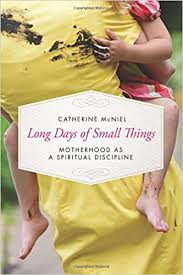Only the shallow know themselves. – Oscar Wilde
Wilde spoke these words more than 100 years ago. If they’re true, then we should have a culture full of self-actualized people who’ve ascended to the tip-top of Maslow’s hierarchy of needs. Popular culture that celebrates surface appearances with relentless devotion. Any Warhol captured this devotion perfectly: “I love Los Angeles. I love Hollywood. They’re beautiful. Everybody’s plastic, but I love plastic. I want to be plastic.” (Can’t help but think here of Steve Taylor’s dated but still relevant Meltdown At Madame Tussaud’s,)
 How do we live from a place of depth, especially when our culture pulls us to the shallows as if they’re our true north? Authors Timothy Willard and Jason Locy offer an extended mediation on the topic in their 272-page hardcover Veneer: Living Deeply In A Surface Society (Zondervan, 2011)*. They tackle our fixations with fame, consumption, progress and more as they urge us to live beyond the brand and packaging of everything including ourselves:
How do we live from a place of depth, especially when our culture pulls us to the shallows as if they’re our true north? Authors Timothy Willard and Jason Locy offer an extended mediation on the topic in their 272-page hardcover Veneer: Living Deeply In A Surface Society (Zondervan, 2011)*. They tackle our fixations with fame, consumption, progress and more as they urge us to live beyond the brand and packaging of everything including ourselves:
“True beauty, some say, resides at the threshold of pain. That is why we can call the crucifixion beautiful. Not because we are barbarians, but because there’s an inherent truth and goodness in it. Christ lays his life down for all of humankind, past, present, and future. This is good; he is good…This is why we can look back on pain in our lives and call it beautiful. It wasn’t beautiful then; it was hell. But from that hell grew a shoot, and from that shoot a leaf, and life sprang up where hell resided; that’s beautiful. God makes it so.”
Pop references, haunting story and well-crafted exposition help readers consider how to live beyond the surface of things. Evangelicalism has long had had the “mile wide, inch deep” rap, the very picture of veneer – all surface, no substance – and though Willard and Locy connected to that world, they do not write as though they are of that world. Veneer does not offer bullet-pointed solutions (thank God!) or insist on developing a “positive, encouraging” anti-culture.
Instead, they ask us to take a step off a metaphorical cliff, trusting we’ll be plunged into the depths of life in God. “With God, the deeper we plunge, the more he expands. Believing in him is merely the jumping off point, the first step…we would jump off a thousand cliff just to feel that sense of aliveness in God.” Veneer was a lovely, convicting, inviting reminder of who God is, and who we’re meant to be. If the constant quest for more, the one-dimensional social media world or the wearying pursuit of pop culture’s “next thing” finds you feeling a little restless, Veneer will not salve that restlessness, but it may woo you to the edge of the cliff. The leap is up to you.
*I received a review copy of this book from the author, but the free book didn’t influence my review. Honest.















